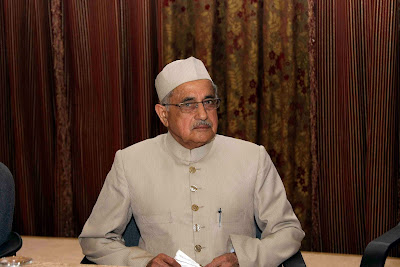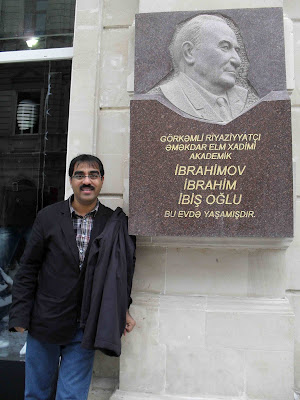


Aiyar Lauds Role of AMU Alumni in Saudi Arabia
By Siraj Wahab
sirajwahab@arabnews.com
Published in Arab News on Saturday, Feb. 25, 2012
A senior member of India’s ruling Congress party and a former minister and high-ranking diplomat made a passionate plea for turning a new chapter in India’s relationship with Pakistan.
Addressing the illustrious alumni of India’s historic Aligarh Muslim University at a well-organized event in Dhahran on Thursday, Mani Shankar Aiyar said it was important for the two nations to bury the ghosts of the past.
“What happened in those two weeks in August 1947 needs to be forgotten,” he said speaking of the unspeakable bloodletting that took place on both sides of the border. “Those two weeks destroyed the excellent relationship that existed between Hindus and Muslims for centuries.”
The event, known as Sir Syed Day, is organized every year in all parts of the world in order to remember and acknowledge the sacrifices made by the university’s founder in the 1860s. Aiyar lauded the positive role being played by AMU alumni in Saudi Arabia.
Turning the pages of history and quoting from his best-selling books, Aiyar said those who hate Pakistan distort history and project Muslim rulers of the past as invaders and bigots. “It was not the sword that won a place for Islam in India, it was the simple message of equality for all (‘masawat’) that attracted large members of the caste-based Hindu society of that era,” he said.
For the Indo-Pak peace dialogue to succeed, Aiyar said it has to be uninterrupted and uninterruptible. “Every time a peace process is initiated we reach instant conclusions and then the whole exercise is aborted in the middle. We need to ask a simple question: Why is it that we can make friends with all nations of the world and not Pakistan?”
Aiyar said there is a dire need to change the anti-Pakistan mindset that prevails in India. “We can neither change geography nor history; we cannot throw Pakistan into the Atlantic Ocean; it will remain where it is,” he said. “And if we were to nuke the Pakistani city of Lahore, yes, it will be finished in two seconds, but do remember that eight seconds later its radiation will envelop the Indian city of Amritsar.”
Having spent three years as India’s high commissioner in Pakistan and having visited the country 30 times in the last 30 years, Aiyar admitted that there was a positive change in the Pakistani mindset.
“I have so many friends in Pakistan that they outnumber my enemies in India, and the generation that experienced the horrors of Partition is thinning out leading to positive change in mindset, but the same is not happening in India … The degree of positive change in the Indian mindset is far less.”
He said peace with Pakistan will help India attain the status it deserves. “We have to go around and tell the world that we have no issues with Pakistan and only then will we attain the status that we rightly deserve.”
To Pakistan, Aiyar said: “It should stop fighting somebody else’s war. It should stop renting it land to foreign powers. The Pakistanis should stop the Americans from using their land to fight their dirty war. Let us join hands.”
He said AMU founder Sir Syed Ahmad Khan was right when he described Hindus and Muslims as two eyes of the nation. “Together they make the face beautiful and bewitching,” Aiyar said.
The Indian community in general and the AMU alumni in particular expressed heartfelt gratitude to senior Indian business executive Shariq Jamal Shamsi for getting Aiyar to the Eastern Province.
“We are extremely happy with the way the whole event was conducted, and the entire organizing team deserves credit for its success,” Shamsi told Arab News. Aiyar thanked Shamsi and the entire community for playing the perfect hosts.
Among the prominent AMU alumni who spoke at the event were Mukkaram Ali Khan, Jamil A. Qureshy, Nadeem Tarin, Sabir Imam, Ajmi Khan and Syed Baqar Naqvi.
Azeem Warsi won applause for his balanced and admirable anchoring.
Six prominent Indians in Saudi Arabia's Eastern Province were honored for their selfless services to the community; they were:
1. International Indian School’s popular headmistress Dhanalaxmi Ramanujam;
2. Parveen Rasheed of Dammam University;
3. Mukkaram Ali Khan of King Fahd University of Petroleum and Minerals;
4. Community activist Parvez Askari;
5. Qur’an expert Abdul Aziz Abdul Raheem and
6. Well-known pediatrician Nafis-ul-Hasan.

























































